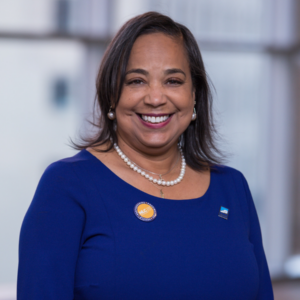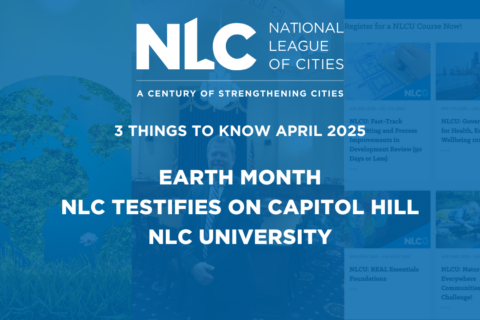As a city leader, I know I have a role to play in fostering diversity, equity and inclusion (DEI) in our local workforce. It’s a crucial part of economic success, and it ensures that no one’s skills and talents are left on the sidelines.
While the concept of DEI has been rightly ingrained in most of us, not everyone is aware of the recent expansion of the term to “DEIA.” The “A” stands for “accessibility,” and it’s something we should all be taking into account.
DEI plans express our commitment to fostering a workplace welcoming of employees from all backgrounds, and many of today’s public and private organizations have them. However, far too often, such plans overlook a vital group: people with disabilities. And that’s what DEIA is all about. There’s an important movement to evolve the concept of “DEI” to include diversity, equity, inclusion and accessibility, because DEI plans that don’t account for disability diversity are, quite frankly, incomplete.
Last fall, I had the honor of joining several other city leaders on a DEIA-focused Solutions Session panel at NLC’s City Summit, where the discussion was both fascinating and inspiring. During the panel, we discussed exemplary practices around the employment of people with disabilities and ways for cities, towns and villages to broaden their approaches to be more inclusive.
One of the practices I shared was my own city’s experience conducting a Workforce Equity Study in Tacoma, Washington. It involved evaluating our city’s public sector workforce, our recruitment and hiring practices, and opportunities for removing systemic barriers facing job applicants and workers from historically underserved communities, including those with disabilities. The study pinpointed practices that have been successful in achieving Tacoma’s workforce inclusion and equity goals, as well as areas for improvement.
It’s heartening to know that numerous other cities are implementing the practices we discussed on the panel, including:
- Developing a workforce DEIA policy or plan for your city, town or village;
- Establishing an Office of Diversity, Equity, Inclusion and Accessibility; and
- Streamlining processes for city employees to request reasonable accommodations.
Everyone knows I like to say that “people plus partnerships equals possibilities” – and local leaders interested in learning more about DEIA and ways to implement disability-inclusive workforce policy have a powerful partner in the State Exchange on Employment and Disability (SEED).
Funded by the U.S. Department of Labor’s Office of Disability Employment Policy, SEED is a unique federal-state-local collaboration that helps states and localities implement policies that advance the employment of people with disabilities—and strengthen their own economies in the process. Acting as an educator and hands-on policy guide, SEED can offer city leaders background on disability employment-related policy practices, show local leaders where inclusion intersects with their own policy agenda, and, if needed, help leaders shape their own effective policies and put them into practice.
Like so many other cities, Tacoma is proud to be embracing a commitment to DEIA, and to making that commitment manifest in the policies and practices we undertake. I hope you’ll join us in expanding the definition of inclusion, and in tapping the skills and talents of a valuable workforce segment: people with disabilities.








